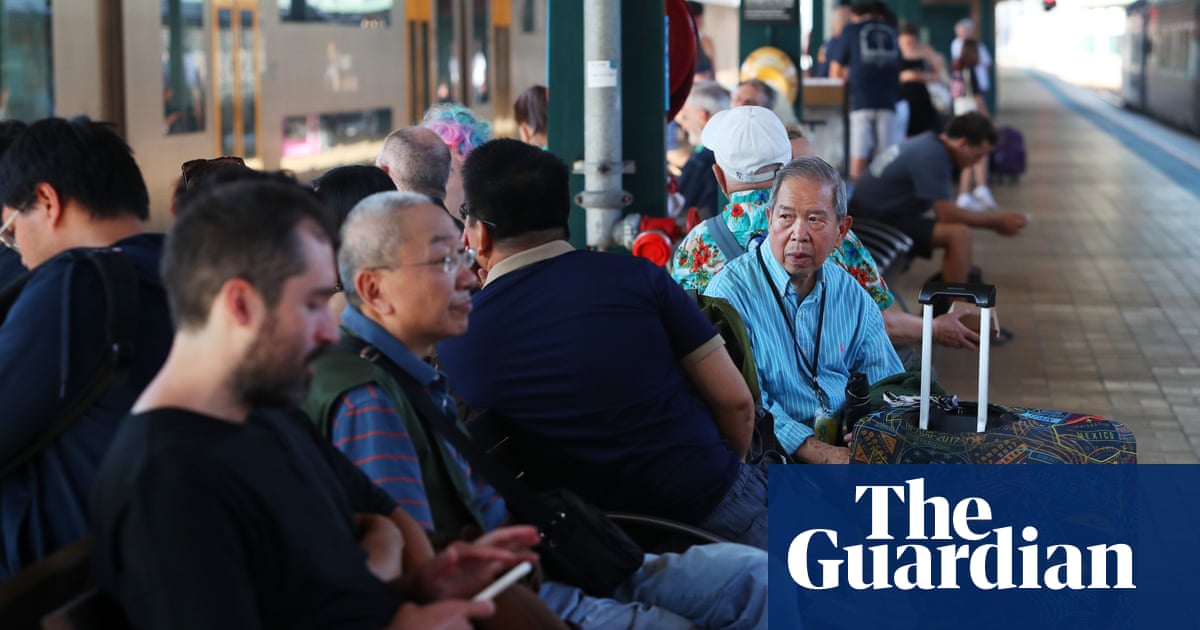New South Wales trains will return to normal scheduling for now after the Fair Work Commission placed an interim pause on its approval for rail unions to undertake industrial action amid a long-running pay dispute with the state government.
The decision came after the NSW premier Chris Minns announced on Thursday – after commuters faced havoc for a second day – that it had made an urgent application to the commission to end the union’s protected industrial actions and move to an arbitrated decision.
Late Thursday afternoon, the Fair Work Commission set the hearing date for the dispute to next Wednesday. Given the significant amount of evidence the government planned to present, the court heard the hearing would likely carry into next Thursday.
Given this would push the hearing outside of the five-day timeframe that the commission is required to hear matters, it issued an interim order to pause the union’s protected industrial actions from 6.30pm Thursday night until the commission delivers its judgment.
The government had requested the hearing be conducted on Friday or over the weekend. However, the court heard this timeframe would not be procedurally fair. Meanwhile, the court heard the union’s request for a Tuesday hearing was also not practicable due to the bench not being available.
On Thursday, prior to the hearing, Minns accused the unions of putting a “noose around the public transport system while demanding more and more and more money”, and said the government had acted with the union in “good faith”.
“We don’t take that call lightly. It is a big call … for a Labor government to make,” he told reporters.
The Rail, Tram and Bus Union had labelled the government’s application to the commission a “desperate attempt to shift the blame for its own failure to negotiate with workers.”
“For 44 days, the government has failed to engage in a single bargaining meeting with the Combined Rail Unions,” the union said in a statement.
“Instead of negotiating, the government is scapegoating rail workers, blaming them for economic disruption they themselves caused. The real cost to the economy isn’t the industrial action – it’s the government’s refusal to negotiate a fair deal.”
The government’s announcement comes after industrial action by the union – as part of the combined rail unions’ demands for the government to provide for a 32% pay rise over four years – saw commuters face 402 train cancellations on Thursday morning after a day of disruption on Wednesday.
The government said more than 1,000 trains were expected to be cancelled by the end of Thursday. Significant cancellations and delays were expected for Friday before the interim order pausing industrial action was put in place.
The chief executive of Sydney Trains, Matt Longland, said service disruptions may worsen in the afternoon.
after newsletter promotion
“We do expect that we’ll see that again today, hopefully not to the same extent as yesterday,” he said.
He said disruptions were worse in the inner-west and services that connect through the Blue Mountains and Parramatta.
This week’s industrial action came as the combined rail unions considered an improved pay offer from the state government, with the deadline to decide on Thursday.
Eight months into negotiations for a new pay deal, and amid proceedings in the Fair Work Commission and federal court, NSW transport minister Jo Haylen announced an offer of an improved 13% pay rise plus 1% efficiency rise and 1% super rise across four years – much lower than the combined rail unions’ demands of 32% over four years.
“We have put a very fair and reasonable offer on the table … However, unfortunately, their commentary in the media and elsewhere has been that they are not supportive of that fair and reasonable offer,” Haylen told reporters on Thursday.
A reporter asked Minns on Thursday if the dispute is proof the government is “not as good at working with unions as you thought”, after running on an election platform of public sector pay rises.
“Every Labor government in NSW has had them,” Minns responded. “What I did promise in the election campaign is that when they occurred, we would always act on behalf of the interests of people, the people of NSW and I believe that’s what we’ve done.”


